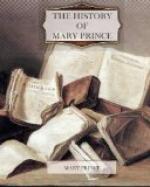“In our report for the year 1826, we quoted a passage from the 13th Report of the Society for the relief of deserted Slaves in the island of Antigua, in reference to a case of great distress. This statement fell into the hands of Mr. M’Queen, the Editor of the Glasgow Courier. Of the consequences resulting from this circumstance we only gained information through the Leicester Chronicle, which had copied an article from the Weekly Register of Antigua, dated St. John’s, September 22, 1829. We find from this that Mr. M’Queen affirms, that ’with the exception of the fact that the society is, as it deserves to be, duped out of its money, the whole tale’ (of the distress above referred to) ‘is an abominable falsehood.’ This statement, which we are informed has appeared in many of the public papers, is COMPLETELY REFUTED in our Appendix, No. 4, to which we refer our readers. Mr. M’Queen’s statements, we regret to say, would lead many to believe that there are no deserted Negroes to assist; and that the case mentioned was a perfect fabrication. He also distinctly avers, that the disinterested and humane agent of the society, Mr. Joseph Phillips, is ’a man of the most worthless and abandoned character.’ In opposition to this statement, we learn the good character of Mr. Phillips from those who have long been acquainted with his laudable exertions in the cause of humanity, and from the Editor of the Weekly Register of Antigua, who speaks, on his own knowledge, of more than twenty years back; confidently appealing at the same time to the inhabitants of the colony in which he resides for the truth of his averments, and producing a testimonial to Mr. Phillips’s good character signed by two members of the Antigua House of Assembly, and by Mr. Wyke, the collector of his Majesty’s customs, and by Antigua merchants, as follows—’that they have been acquainted with him the last four years and upwards, and he has always conducted himself in an upright becoming manner—his character we know to be unimpeached, and his morals unexceptionable.’
(Signed) “Thomas
Saunderson John D. Taylor
John A. Wood George
Wyke
Samuel L. Darrel Giles
S. Musson
Robert Grant.”
“St. John’s, Antigua, June 28, 1825.”
In addition to the above testimonies, Mr. Phillips has brought over to England with him others of a more recent date, from some of the most respectable persons in Antigua—sufficient to cover with confusion all his unprincipled calumniators. See also his account of his own case in the Anti-Slavery Reporter, No. 74, p. 69.]
I leave the preceding letter to be candidly weighed by the reader in opposition to the inculpatory allegations of Mr. Wood—merely remarking that Mr. Wood will find it somewhat difficult to impugn the evidence of Mr. Phillips, whose “upright,” “unimpeached,” and “unexceptionable” character, he has himself vouched for in unqualified terms, by affixing his signature to the testimonial published in the Weekly Register of Antigua in 1825. (See Note below.)




